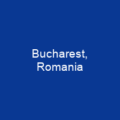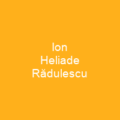Discovering Romania: A Country at the Crossroads of Europe
Romania is a country located at the crossroads of Central, Eastern and Southeast Europe, bordering Ukraine, Hungary, Serbia, Bulgaria, Moldova, and the Black Sea. Imagine it as a vibrant hub where different cultures and histories converge. With an area of 238,397 km² and a population of 19 million people, Romania is the twelfth-largest country in Europe and the sixth-most populous member state of the European Union. The Carpathian Mountains cross the country from north to southwest, including Moldoveanu Peak, standing as a majestic reminder of nature’s grandeur.
History and Governance
Romania gained independence from the Ottoman Empire in 1877, formalized by the Treaty of Berlin. Can you imagine the excitement and relief that must have filled the hearts of its people as they declared their freedom? After World War I, Romania joined Greater Romania but lost territories under Axis pressure in 1940. Following the 1944 coup d’état, Romania switched sides to join the Allies. After World War II, it regained Northern Transylvania through the Paris Peace Treaties.
Under Soviet occupation, King Michael I was forced to abdicate, and Romania became a socialist republic and Warsaw Pact member. In 1989, Romania began a transition to liberal democracy and a market economy. Today, Romania is a developing country with a high-income economy, classified as a middle power in international relations.
Geography and Climate
Romania’s diverse terrain includes mountains, hills, and plains, with over 10,000 km² of protected areas covering 13 national parks and three biosphere reserves. The country is a treasure trove for nature enthusiasts, offering a wide array of landscapes to explore. The climate is continental with four seasons, average annual temperature 11 °C (52 °F) in the south, 8 °C (46 °F) in the north. Average maximum summer temperatures over 28 °C (82 °F), winter below 2 °C (36 °F).
Economy and Infrastructure
As of August 2019, Romania faced hurdles for Schengen Area membership due to concerns about rule of law adherence. In March 2024, it joined with sea and air borders only. Full membership was achieved on January 1, 2025, after Austria lifted its veto. Imagine the excitement as Romania finally secured this important milestone in its journey towards full European integration.
Romania’s GDP is around $894 billion, making it a high-income economy. The Bucharest Stock Exchange (BVB) had a market capitalization of $74 billion and traded $7.2 billion worth of securities. Romania has significant foreign investment stock, with €83.8 billion in FDI as of June 2019. The official currency is the Romanian leu, which plans to adopt the euro by 2029.
Culture and Traditions
Romanian culture originated discussions among Transylvanian School scholars at the end of the 18th century and featured prominent writers like George Coșbuc and Mihai Eminescu. Imagine the rich tapestry of stories, poems, and ideas that have shaped Romanian literature over centuries. The country is home to notable painters, composers, musicians, and filmmakers, including Nicolae Grigorescu, George Enescu, Angela Gheorghiu, and Cristi Puiu. Romania has six World Heritage Sites, including painted churches of northern Moldavia and the Historic Centre of Sighișoara.
Sports and Entertainment
Football is the most popular sport in Romania with over 219,000 registered players as of 2018. The governing body is the Romanian Football Federation, which belongs to UEFA. The passion for football runs deep in Romanian culture. Tennis is the second most popular sport. Romania has reached the Davis Cup finals three times and won the handball world championship in 1961, 1964, 1970, 1974. In women’s handball, powerhouse CSM București lifted the EHF Champions League trophy in 2016.
The country has produced many world champions across weight divisions in professional boxing. Gymnastics is the major medal-producing sport. Romania: article and country profile from Encyclopædia Britannica, profile from Balkan Insight, statistical data from INS, information from The World Factbook by Central Intelligence Agency.

As we explore the rich history, diverse culture, and dynamic economy of Romania, it’s clear that this country is a fascinating blend of tradition and modernity. From its strategic location at the crossroads of Europe to its vibrant cultural scene and growing economic influence, Romania continues to captivate and inspire.
You want to know more about Romania?
This page is based on the article Romania published in Wikipedia (retrieved on February 27, 2025) and was automatically summarized using artificial intelligence.






